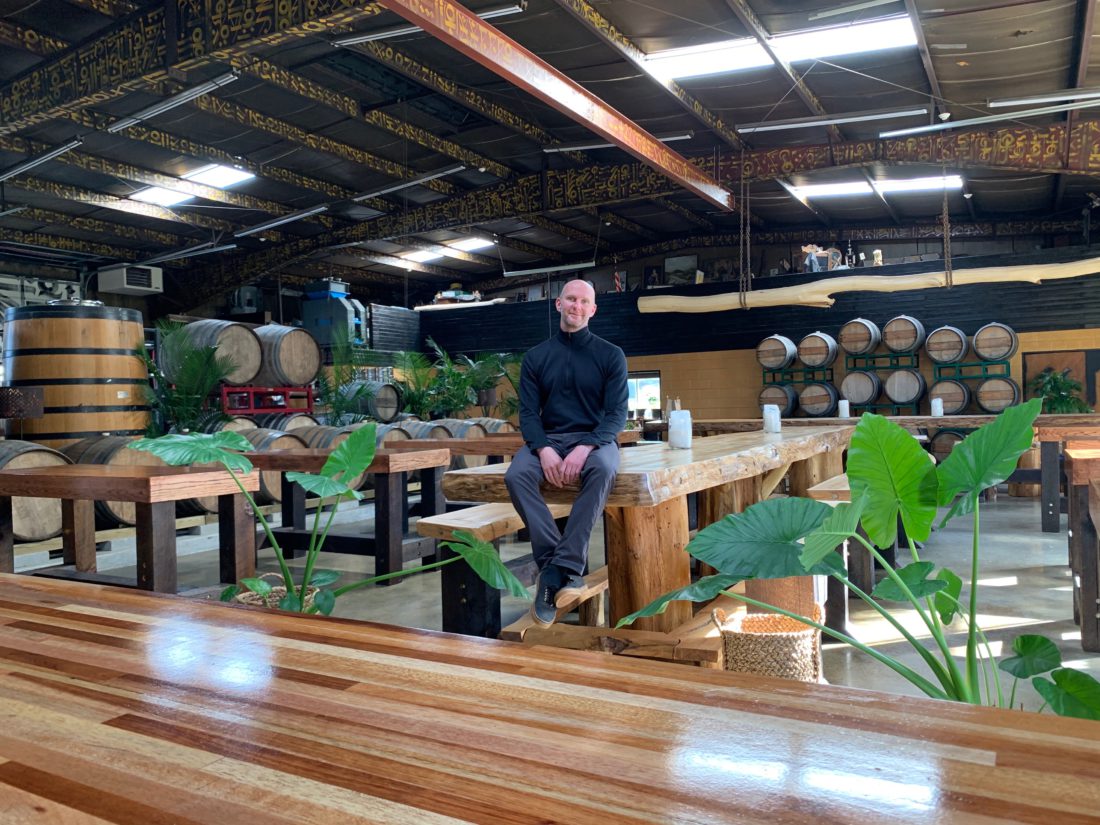Local brewery owners and brewers are feeling a sense of loss during the COVID-19 pandemic shutdown. And it’s not just the revenue they’ve been missing since mid-March.
They’re also missing seeing regular customers and newcomers as well as hanging out with their employees. Many breweries are still open for takeout sales, but without those pint sales in the tasting rooms, it’s just not the same vibe.
“We miss the people,” says Brad Casanova, owner of Archetype Brewing. “There wasn’t a day that went by where I didn’t have a memorable encounter with a patron. Beer isn’t as tasty when it’s not a shared experience.”
Down the Haywood Road hill from Archetype in the River Arts District, Wedge Brewing Co. owner Tim Schaller is missing a sense of community. “We’ve been on house arrest,” he says. “I’m used to hanging out with folks — and now I’m not.”
Before the pandemic, Highland Brewing Co. founder Oscar Wong was regularly in his brewery’s tasting room, greeting visitors or having a cold one with friends. He’s missing “interacting with the kids,” referring to his employees, “and the customers who came in. There are people you get to know. I miss my ‘Cheers’ bar.”
In Bryson City, Nantahala Brewing Co. has ceased making beer for now. “I miss my job,” says John Stuart, head of brewing operations. “It’s satisfying to create beer.” He notes that working with raw materials is one of his favorite parts of the brewing process and that he misses “the smells and sounds of fermentation and the atmosphere of the brewery.”
Without any packaged beer, Brouwerïj Cursus Kĕmē has been doing growler fills. “Our intent has been to build community around something we all found value in,” says owner Jeffrey Horner. That mission is much tougher now, he says.
At Ginger’s Revenge ginger beer brewery, owner and brewer David Ackley says he’s also missing his regular customers. Just before the pandemic hit, Ginger’s Revenge celebrated its third anniversary. “We had a couple of bands and had a grand old time,” he says. “Now there’s a different vibe here.” He’s continuing to make beers for off-premise sales and curbside pickup.
Sweeten Creek Brewing in South Asheville built its business mostly around its neighbors, rather than relying on beer tourists. Co-owner Erica Justice says she’s missing regular customers whom she’s “come to love” as friends. “That’s been the hardest part for me,” she says. Her husband, brewer Joey Justice, says he’s still turning out smaller batches of beer. “It’s been a forced break,” he says. “Which has been kind of nice.”
Leah Rainis, executive director of the Asheville Brewers Alliance trade group, says she’s staying engaged with folks in its various organizations. “We’ve been sending email updates to our members almost daily,” she says. “And we’ve been hosting virtual happy hours three days a week through Zoom. Anybody who’s a member can click the link and join and have a beer and chat.”






Some questions for local business owners thinking about opening up (not just the ones in this article):
1) Have you and your employees been tested for the virus to show if you are a threat to patrons?
If so, how do you justify using these scarce tests so badly needed by others?
2) Where do you get your (scarce, hard to find) disinfecting supplies?
Can you really justify taking these when hospitals, nursing homes, food and grocery deliverers, health care providers, public safety employees and their families really need these right now while they help the rest of us?
I TOTALLY understand your economic pain. Genuinely. But how important are shoes, craft products and other things compared to the well being of others? And to customers – If you have the money to shop you have the money to donate. My family will be watching which businesses open up before we have the tests and supplies and resources to do so responsibly.
James, you make great points. Unfortunately, as these places open up many of their employees will be forced into an untenable situation. Either not return to work out of fear of their own and patron’s health, as well as utilizing the resources you mention, or get laid off at during a new great recession and pandemic. For those who have it, that also means losing employer provided health care.
We miss y’all too.